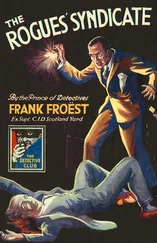'Sorry?'
' Velella velella . By-the-wind sailors, Quite pretty, really, providing they're not rotting on the beach. Little violet-coloured jellies – the sand was covered with them. Everyone knows I'm a big fan of jellyfish, but there were too many even for me. The Australian story is seriously odd, though.'
'In what sense?'
'You find box jellies on the coastline, where the water's nice and shallow, not out to sea, and definitely not on the Barrier Reef- but they're saying they've been found there too. It's the opposite with Velella . They're an offshore species, and no one understands why they sometimes turn up on the beach.'
'I thought the beaches were protected by nets.'
Olsen roared with laughter. 'They're useless. The mesh stops the jellies, but the tentacles break off and carry on drifting. No one can see them.' He stopped. 'But why are you so interested? You must know a bit about jellyfish yourself.'
'Not nearly as much as you do. Is this a scientific anomaly?'
'You can pretty much bet on it,' said Olsen, balefully. 'Jellyfish distribution is linked to rising water temperatures and high levels of plankton. Plankton thrive in nice warm water, and jellyfish eat plankton, so you can guess what happens next. It's why they turn up in their hordes towards the end of summer and disappear a few weeks later. It's their natural cycle. Hang on a moment.'
Johanson heard shrieks in the background. He wondered what time the Olsen children went to bed – whenever he called, some kind of riot was going on. Olsen yelled at them to quieten down. Then he was back. 'Anyway, I reckon we get these invasions because the sea is being over-fertilised. Sewage encourages plankton levels to rise, and it all takes off from there. You only need a strong westerly or north-westerly, and the jellyfish are on your doorstep.'
'Yes, but those are normal jellyfish plagues. I want to know-'
'You want to know if it's an anomaly – and I think it probably is. But it's precisely the kind that's difficult to spot. Tell me, have you got any pot plants?'
'Yes.'
'A yucca?'
'Two.'
'There you go – an anomaly. The yucca isn't native.'
Johanson rolled his eyes. 'Don't tell me we're being threatened by a yucca invasion. Mine are fairly placid.'
'That's not what I meant. I'm saying that we've forgotten what's natural and what's not. Back in 2000 I was called out to the Gulf of Mexico to investigate a plague of jellies that was threatening the local fish stock. They invaded the spawning grounds in Louisiana, Mississippi and Alabama, devouring fish eggs and larvae, plus the plankton that the fish would normally eat. The damage was caused by an Australian jellyfish from the Pacific that shouldn't have been there at all.'
'An invasive species.'
'Exactly. The jellies were destroying the food chain and slashing the fish yield. It was catastrophic. A few years before that, the Black Sea was on the brink of an ecological disaster because during the eighties a cargo vessel had shipped in some comb jellies with its ballast water. They didn't belong there. The Black Sea countries kicked up a fuss, but before anyone could do anything about it, the region was screwed. Eight thousand jellies per square metre of sea. Do you know what that means?'
Olsen was talking himself into a fury.
'Then this other business. Portuguese men-of-war off the coast of Argentina. That's not their territory. Central America, Peru and Chile, maybe. But further south? Impossible. Fourteen deaths, just like that. A biological invasion. You can bet the locals weren't expecting it. And now box jellies on the Barrier Reef! It's as if someone had magicked them there.'
'What I find peculiar,' said Johanson, 'is that it's the two most venomous species.'
'Absolutely,' Olsen said slowly. 'But I hope you're not about to give me some kind of conspiracy theory. This is Norway, not America. There are plenty of possible explanations for the rise in jellyfish plagues. Some scientists say it's El Niño and others blame global warming. In Malibu the plagues are the worst they've had in years, and Tel Aviv's seeing some gigantic specimens. Global warming, invasive species – it all makes sense.'
Johanson wasn't listening. Olsen had said something that stuck in his mind.
As if someone had magicked them there.
It was the same for the worms.
As if someone had magicked them there.
'. . . breeding in the shallows,' Olsen was saying. 'And another thing. When they say "unusually large numbers", they don't mean thousands, they mean millions. And the government says it's under control! There have been far more than fourteen deaths, believe me.'
'Uh-huh.'
'Are you listening?'
'Of course. More than fourteen deaths. What were you saying about conspiracy theories?'
Olsen laughed. 'Very good. But seriously, though, I think it's definitely an anomaly. It might look like a cyclical phenomenon, but I think it's something else.'
'Interesting.' Should he tell Oslen about the worms? But it was none of his business, and Statoil wouldn't be happy if the story hit the headlines – Olsen talked too much.
'How about lunch tomorrow?' asked Olsen.
'Sure.'
'I'll see if I can find out more. Fish for some information.' He chortled.
'Great,' said Johanson. 'See you tomorrow.' He hung up. Then he remembered that he'd meant to ask Olsen about the missing boats. Never mind – he'd mention it tomorrow.
He wondered whether the jellyfish story would have made such an impression on him if he hadn't known about the worms. Probably not, because the jellies weren't what interested him. He wanted to know about the connections – if there were any.
THE FOLLOWING MORNING, on the way to the NTNU, Johanson listened to the news, but there was nothing he hadn't heard already. People and boats were going missing in different parts of the world, giving rise to endless speculation but no satisfactory explanation.
His lecture was scheduled for ten. Enough time to read his emails and glance at the post. It was pouring with rain, and the grey sky hung heavy over Trondheim. He'd scarcely turned on the lights and sat down at his desk with his coffee when Olsen poked his head round the door. 'It's never-ending,' he said, 'all this bad news.'
'You mean the missing boats? I was going to ask you about that yesterday, but I forgot.'
Olsen came into the room. 'Are you going to offer me some coffee?' he said, looking around intently. Curiosity was one of Olsen's useful but slightly wearisome traits.
'It's all next door,' Johanson told him.
Olsen leaned into the adjoining office and asked for a coffee at the top of his voice. Then he sat down and let his eyes rove round the room. Johanson's secretary marched in, slammed a mug in front of Olsen and stalked back to her desk.
'What's wrong with her?' said Olsen, surprised.
'I pour my own coffee,' said Johanson. 'It's all laid out. Flask, milk, sugar, cups…'
Olsen took a noisy gulp. 'So you didn't listen to the news?'
'I heard it in the car.'
'Ten minutes ago there was an emergency newsflash on CNN. I've got a telly in my office – I keep it on all day.' The overhead lighting shone on Olsen's emerging bald patch. 'A gas tanker's exploded off the coast of Japan, then two container ships and a frigate collided in the Strait of Malacca. One of the ships sank, the other isn't seaworthy, and the frigate's gone up in flames. It belonged to the military. There was an explosion.'
'Christ.' Johanson warmed his hands on his mug. 'As far as the Malacca Strait is concerned,' he said, 'I can't say I'm surprised. It's astonishing there aren't more accidents.'
'Sure, but it's quite a coincidence.'
Three stretches of water competed for the title of busiest waterway in the world: the English Channel, the Strait of Gibraltar and the Strait of Malacca, which formed part of the main route between Europe, South East Asia and Japan. Six hundred tankers and freighters passed through the strait each day, and sometimes the channel between Malaysia and Sumatra carried as many as two thousand vessels. The strait was eight hundred kilometres long, but its narrowest point was only 2.7 kilometres wide. India and Malaysia had urged the tankers to use the Lombok Strait further south, but their pleas had fallen on deaf ears. Taking a detour would decrease the profit margin, so 15 per cent of international shipping continued to stream through the Malacca Strait.
Читать дальше












